
Bernard-Germain-Étienne de La Ville-sur-Illon, comte de Lacépède or La Cépède was a French naturalist and an active freemason. He is known for his contribution to the Comte de Buffon's great work, the Histoire Naturelle.

Louis Pierre Vieillot was a French ornithologist.

Agkistrodon is a genus of venomous pit vipers commonly known as American moccasins. The genus is endemic to North America, ranging from the Southern United States to northern Costa Rica. Eight species are currently recognized, all of them monotypic and closely related. Common names include: cottonmouths, copperheads, and cantils.
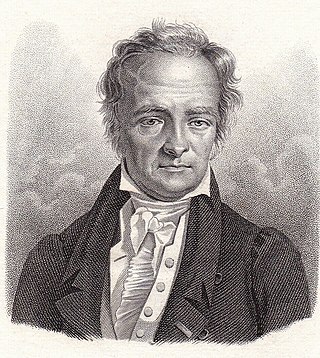
Louis Augustin Guillaume Bosc was a French botanist, invertebrate zoologist, and entomologist.

Achille Valenciennes was a French zoologist.
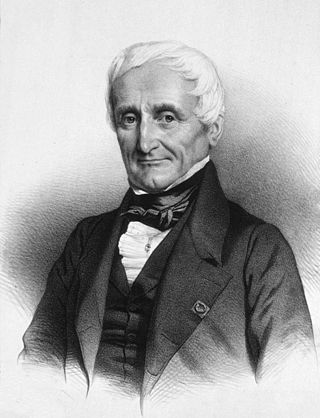
André Marie Constant Duméril was a French zoologist. He was professor of anatomy at the Muséum national d'histoire naturelle from 1801 to 1812, when he became professor of herpetology and ichthyology. His son Auguste Duméril was also a zoologist, and the author citation Duméril is used for both André and his son.

François Levaillant was a French author, explorer, naturalist, zoological collector, travel writer, and noted ornithologist. He described many new species of birds based on birds he collected in Africa and several birds are named after him. He was among the first to use colour plates for illustrating birds and opposed the use of binomial nomenclature introduced by Carl Linnaeus, preferring instead to use descriptive French names such as the bateleur for the distinctive African eagle.

Jacques Barraband was a French zoological and botanical illustrator, renowned for his lifelike renderings of tropical birds. His pictures were based on mounted specimens and his illustration was considered the most accurate ones made during the early 1800s.
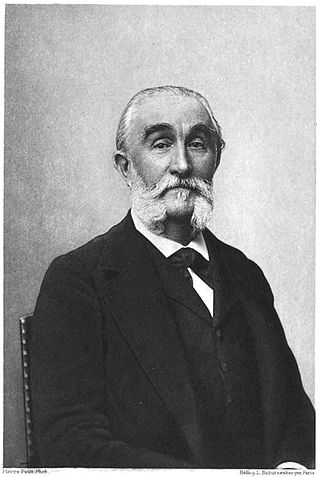
Alfred Grandidier was a French naturalist and explorer.

Alexandre Brongniart was a French chemist, mineralogist, geologist, paleontologist, and zoologist, who collaborated with Georges Cuvier on a study of the geology of the region around Paris. Observing fossil content as well as lithology in sequences, he classified Tertiary formations and was responsible for defining 19th century geological studies as a subject of science by assembling observations and classifications.
The Lost Chapter of the Acts of the Apostles, also known as the Sonnini Manuscript, is a short text purporting to be the translation of a manuscript containing the 29th chapter of the Acts of the Apostles, detailing Paul the Apostle's journey to Britannia, where he preached to a tribe of Israelites on "Mount Lud", later the site of St Paul's Cathedral, and met with Druids, who proved to him that they were descended from Jews. Thereafter, Paul preached in Gaul and Belgium, and then to Switzerland (Helvetia), where a miraculous earthquake occurred at the site of Pontius Pilate's supposed suicide.

Ambroise Marie François Joseph Palisot, Baron de Beauvois was a French naturalist and zoologist.

Craspedocephalus trigonocephalus, the Sri Lankan pit viper, Ceylon pit viper, Sri Lankan green pitviper or locally, pala polonga, is a venomous pit viper species endemic to Sri Lanka. No subspecies are currently recognized.
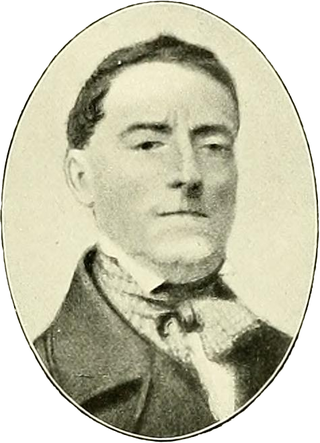
Édouard Spach was a French botanist. The standard author abbreviation Spach is used to indicate this person as the author when citing a botanical name.

The Euphrates softshell turtle, also known as the Mesopotamian softshell turtle, is a species of softshell turtle in the family Trionychidae. It is found throughout much of the Euphrates–Tigris river basin in Iraq, Syria, Turkey and Khūzestān Province of Iran. Historically it has also been reported from Israel, but this likely involves confusion with the very similar Trionyx triunguis.

Henry Hunter(25 August 1741 – 27 October 1802) was a Scottish minister who translated the works of noted scholars including Leonard Euler and Johann Kaspar Lavater.

Julien-Joseph Virey was a French naturalist and anthropologist.
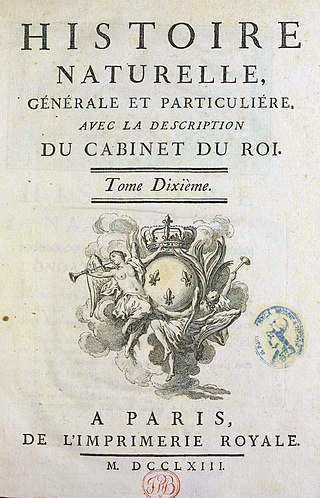
The Histoire Naturelle, générale et particulière, avec la description du Cabinet du Roi is an encyclopaedic collection of 36 large (quarto) volumes written between 1749–1804, initially by the Comte de Buffon, and continued in eight more volumes after his death by his colleagues, led by Bernard Germain de Lacépède. The books cover what was known of the "natural sciences" at the time, including what would now be called material science, physics, chemistry and technology as well as the natural history of animals.
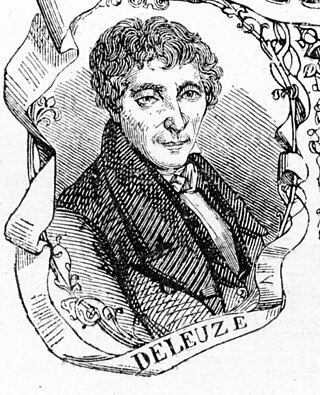
Joseph-Philippe-François Deleuze was an 18th–19th-century French naturalist.
Spondylurus sloanii, also known commonly as Sloane's skink or the Virgin Islands bronze skink, is a species of lizard in the family Scincidae. The species is native to the United States Virgin Islands and the British Virgin Islands.


















